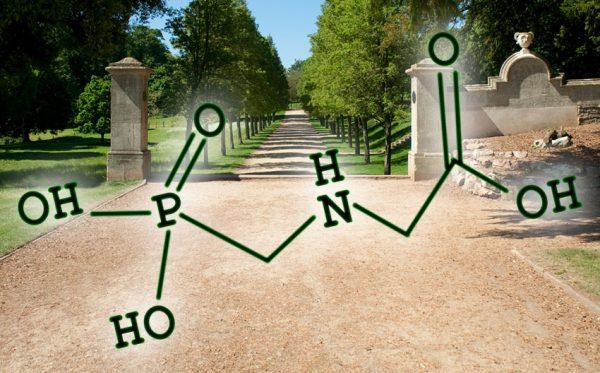Can Glyphosate Affect your Health?
Over recent year’s glyphosate and the weed killers that contain the active ingredient have been under fire from both news articles and legal cases claiming that it is a cause for cancer. This blog will explore what the truths are about this product and whether it really is as bad as they say…
What is glyphosate?
Glyphosate is the active ingredient in many herbicides such as Roundup ProActive. The chemical is created when methylphsphonic acid and glycine are combined. Herbicides made with glyphosate are non-selective meaning that they will kill most plants that they are in contact with and cannot target specific ones. Glyphosate works by interfering and blocking an enzyme that is essential for plant growth so effectively provides total control to the treated plants/weeds. Plant enzymes are completely different to mammalian enzymes (those that humans have) so glyphosate would not have this effect on us.
What is the issue with glyphosate?
During the last few years, glyphosate products have received tens of thousands of lawsuits in America from people claiming that they had developed non-Hodgkin Lymphoma as a result of exposure to glyphosate herbicides. Many research studies have been carried out since these reports have happened to find out if there is any validity in these claims.
What's the verdict?
When searching the internet on this subject there are reams and reams of articles which all have contradicting answers however the question “Can glyphosate cause cancer” was asked on the Cancer Research UK website and this is their response:
“There is no good evidence that people exposed to glyphosate at low levels, for example when using it as a weed killer in their garden, have an increased risk of cancer”
Essentially, there is no concrete evidence to suggest that glyphosate does cause cancer. This can be backed up by studies carried out by the United States Environmental Protection Agency (EPA) whose scientists performed an independent evaluation of available data for glyphosate and found:
“No risk of concern to human health from current uses of glyphosate”
“No evidence that glyphosate causes cancer in humans – the Agency concluded that glyphosate is not likely to be carcinogenic to humans”
When looking at LD50 (lethal dose) and toxicity ratings, glyphosate actually ranks lower than some common household substances. Glyphosate comes in as slightly toxic alongside citric acid which is found in oranges and lemons whereas the likes of chocolate and table salt are classed as moderately toxic. This puts into perspective how this product should be treated.
On top of this, glyphosate has been used for over 30 years in various different industries so is one of the most tested and studied active ingredients.
What can I do to protect myself?
On every product label there will be information on the hazards of the product. Alongside this there is guidance that full PPE should be worn. This message is also on our website on chemical product listings to make sure that people understand the need to protect themselves. This may make it sound like the claims are true, however when using household bleach you would use protective gloves to ensure that none comes in contact with your hands. This is the same situation you want to try and protect your body from coming into contact with a chemical.
Blog sources:
(Cancer Research UK - https://www.cancerresearchuk.org/about-cancer/causes-of-cancer/cancer-controversies/can-pesticides-or-herbicides-cause-cancer)
(United States Environmental Protection Agency - https://www.epa.gov/ingredients-used-pesticide-products/glyphosate)
(Product toxicity table - https://pesticidesinperspective.org.uk/media/1037/glyphosate-toxicity-table.pdf)





